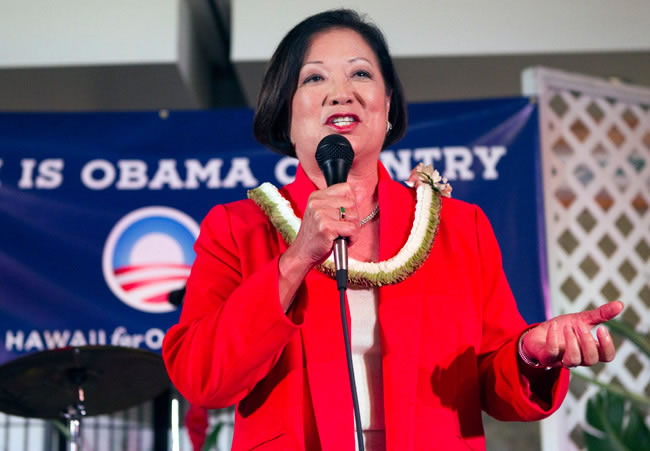The Election Is Over. Now What?
So the candidates, winners and losers alike, have taken down their signs. No one waves at us in the early morning light as we leave for work, nor in afternoon’s shadows when we drive home. Postal employees catch their breath between political mailings and the first wave of Christmas cards and packages. Television station managers laugh their way to their respective banks, carrying bags of Lingle, Hirono, Djou, Hanabusa, Caldwell, Cayetano and Pacific Resource Partnership money.
Now what? The poetry of campaigning passeth to make way for the prose of governing, but this year’s campaign poetry proved more slam than lyric, and if the early post-election noise from Washington is indicative of the future, we will continue to govern in the most brutal of prose.
So let’s start at the top. Barack Obama, the pride of 71 percent of Hawaii’s voters in 2012, has got to play the full game – all out, all the way, through December 2016. Too often in his first term, Obama retreated into his bubble of White House sycophants and professorial reflection, allowing Southern Republican senators and tea party know-nothings – or no-nothings – to capture the airwaves with their inanities. He refused to fight, leaving many of his most faithful supporters to despair and his policies to flounder. That’s bad practice in a first term, poisonous in a lame-duck second.
Mayor-elect Kirk Caldwell has work to do as well. After proclaiming himself ecstatic at the prospect of fixing potholes, scrubbing park restrooms and moving sewage, he’d better dwell first and foremost on his promise “to build rail better.” A good 90 percent of those who voted in the Honolulu mayoral race voted on that issue alone, for or against. Caldwell can leave a restroom or two dirty, but he must “build rail better.”
And John White and those responsible for PRP’s $2.8 million assault on Ben Cayetano had best look hard at what they didn’t do: They didn’t make the case for rail. Anti-rail spokesmen have controlled the narrative on that issue since long before Cayetano announced his candidacy. PRP may have taken Ben down, but it’s doubtful that they’ve sold rail sufficiently to see it through to completion.
Since election day, we’ve spent a fair amount of time congratulating ourselves on electing three women to Hawaii’s four-person delegation. But so what? Mazie Hirono won big, but she offered voters some of the most embarrassing debate moments of the campaign season. Tulsi Gabbard, despite her professed foxhole conversions on key social issues, left many liberal Democrats wondering whether she was sincere about them, and Colleen Hanabusa spent too much of her campaign lecturing voters on how Congress worked.
In the months and years ahead, Hirono, Gabbard and Hanabusa need to speak more clearly, more definitively and more productively. If we hurtle over the fiscal cliff, if Washington’s gridlock prevails, it doesn’t matter the gender of those casting the votes.
At home, the Legislature is going through post-election reorganization. The Senate’s leadership looks almost exactly as it did last session. The House, as I write, remains unorganized. Speaker Calvin Say’s leadership is being challenged by former Speaker Joe Souki.
That’s right, 79-year-old Joe Souki. In the narrow defeats of 72-year-old mayoral candidates Cayetano on Oahu and Harry Kim on Hawaii Island, the state’s geezer government took a couple of hits. But give Joe a chance; he’ll take us back to the future.






